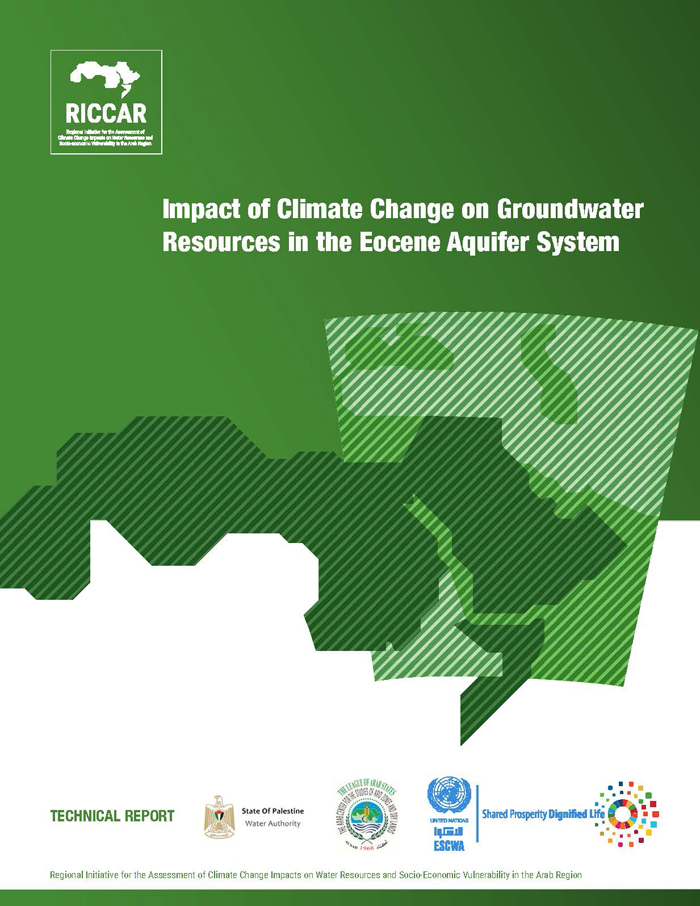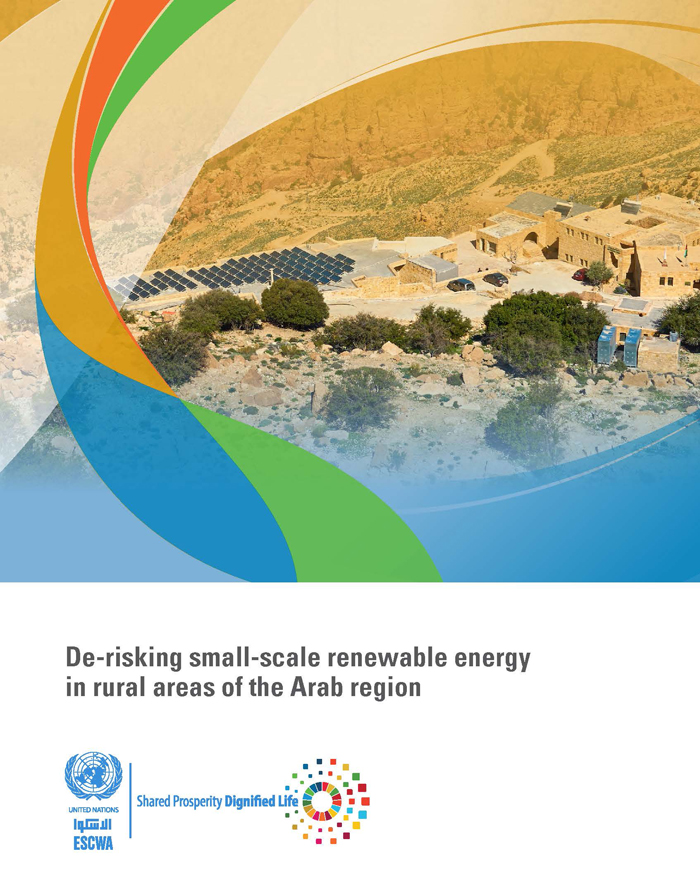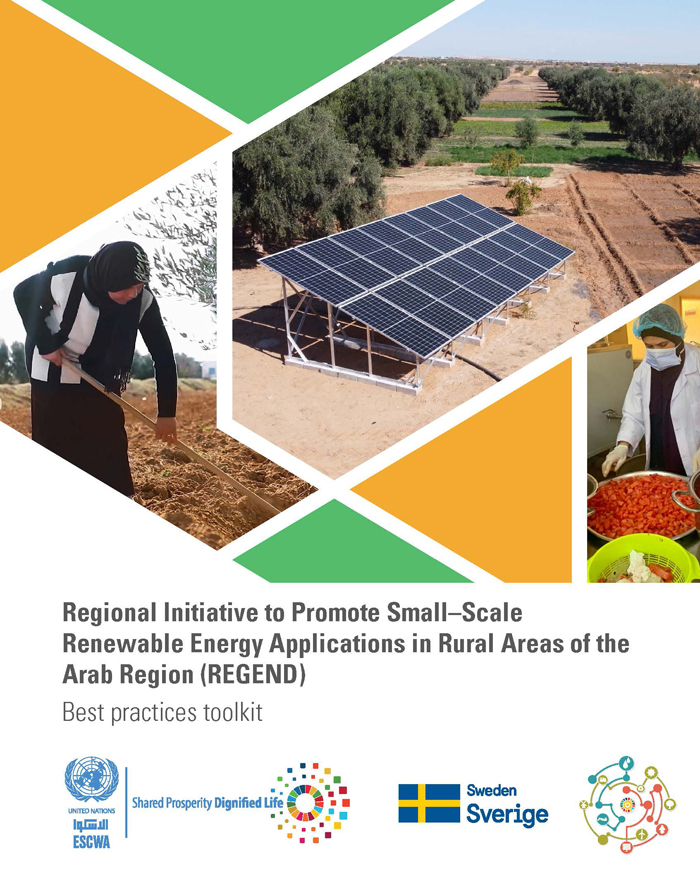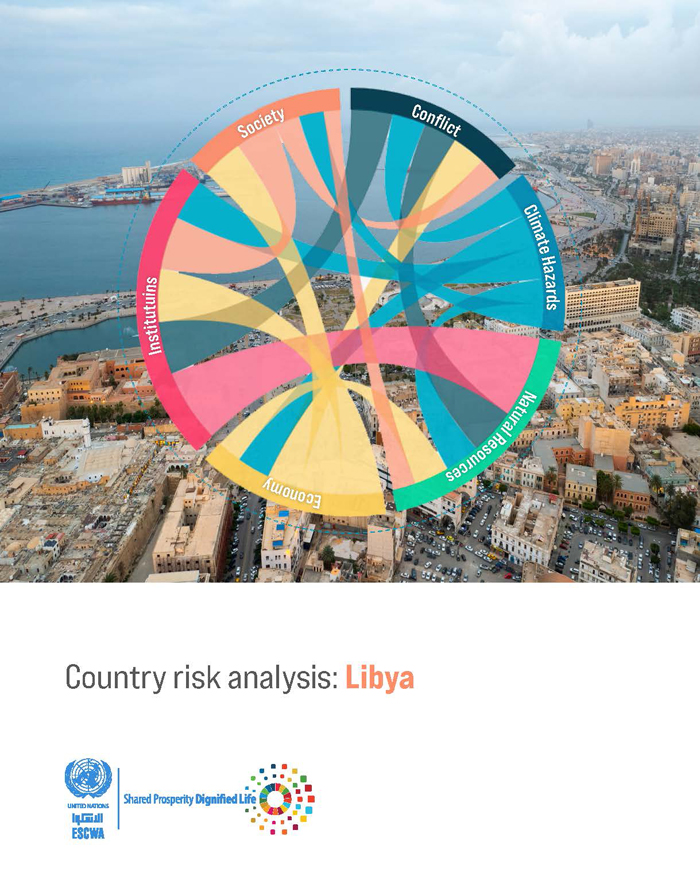
ESCWA Publication: E/ESCWA/CL1.CCS/2021/RICCAR/TECHNICAL REPORT.8
Country: State of Palestine
Publication Type: Reports & studies
Cluster: Climate Change and Natural Resource Sustainability
Focus Area: Climate change, Natural resource sustainability
Initiatives: Arab Centre for Climate Change Policies, RICCAR, Advancing water and food security
SDGs: Goal 1: No Poverty, Goal 4: Quality Education, Goal 6: Clean Water and Sanitation, Goal 7: Affordable and Clean Energy, Goal 13: Climate Action, Goal 15: Life On Land
Keywords: Climate change, Groundwater, Food security, Potatoes, Agricultural productivity, Water balance, Water resources, Heat
Impact of Climate Change on Groundwater Resources in the Eocene Aquifer System
June 2022
Multiple challenges to water resources across the Arab region, stemming from the region’s unique and complex geopolitical and socioeconomic setting, impact the ability to promote sustainable water management and availability. Groundwater is of particular significance, as it is a major source of drinking water and often used for agricultural irrigation. Aquifers across the Arab region are subject to limited recharge, however. Renewable groundwater systems are estimated to amount to approximately 41 billion m3, mostly in the form of shallow aquifers recharged by surface water basins during flood. Groundwater governance in the region also poses its own unique difficulties. Political will is often lacking or inadequate to implement policy and legislation. Lastly, both surface and groundwater systems in the Arab region are also threatened by climate change. The Regional Initiative for the Assessment of Climate Change Impacts on Water Resources and Socio-Economic Vulnerability in the Arab Region (RICCAR) reveals that temperature is projected to increase by between 1.2 and 2.6°C by mid-century and up to 4.8°C by 2100. Climate change influences groundwater systems both directly through water availability for recharge and indirectly through changes in groundwater abstraction and use patterns.
This report aims to assess the impacts of climate change on groundwater resource use and availability in the Eocene aquifer, part of the north-eastern transboundary aquifer system, and particularly on groundwater abstraction that supplies water to Jenin and Nablus districts in the State of Palestine, which are highly populated with a high demand for agricultural activities. The study focuses on the nexus between water and food security and climate resilience. It seeks to provide Arab government officials from ministries and agencies responsible for agriculture, water, environment, meteorology and planning as well as local communities, including smallholder farming communities, women, youth and regional organizations and research organizations, with knowledge on regional climate challenges to water and food security and with recommendations for increasing climate resilience.
Related content
Climate change
, Natural resource sustainability
,
Multiple challenges to water resources across the Arab region, stemming from the region’s unique and complex geopolitical and socioeconomic setting, impact the ability to promote sustainable water management and availability. Groundwater is of particular significance, as it is a major source of drinking water and often used for agricultural irrigation. Aquifers across the Arab region are subject to limited recharge, however. Renewable groundwater systems are estimated to amount to approximately 41 billion m3, mostly in the form of shallow aquifers recharged by surface water basins during flood. Groundwater governance in the region also poses its own unique difficulties. Political will is often lacking or inadequate to implement policy and legislation. Lastly, both surface and groundwater systems in the Arab region are also threatened by climate change. The Regional Initiative for the Assessment of Climate Change Impacts on Water Resources and Socio-Economic Vulnerability in the Arab Region (RICCAR) reveals that temperature is projected to increase by between 1.2 and 2.6°C by mid-century and up to 4.8°C by 2100. Climate change influences groundwater systems both directly through water availability for recharge and indirectly through changes in groundwater abstraction and use patterns.
This report aims to assess the impacts of climate change on groundwater resource use and availability in the Eocene aquifer, part of the north-eastern transboundary aquifer system, and particularly on groundwater abstraction that supplies water to Jenin and Nablus districts in the State of Palestine, which are highly populated with a high demand for agricultural activities. The study focuses on the nexus between water and food security and climate resilience. It seeks to provide Arab government officials from ministries and agencies responsible for agriculture, water, environment, meteorology and planning as well as local communities, including smallholder farming communities, women, youth and regional organizations and research organizations, with knowledge on regional climate challenges to water and food security and with recommendations for increasing climate resilience.



